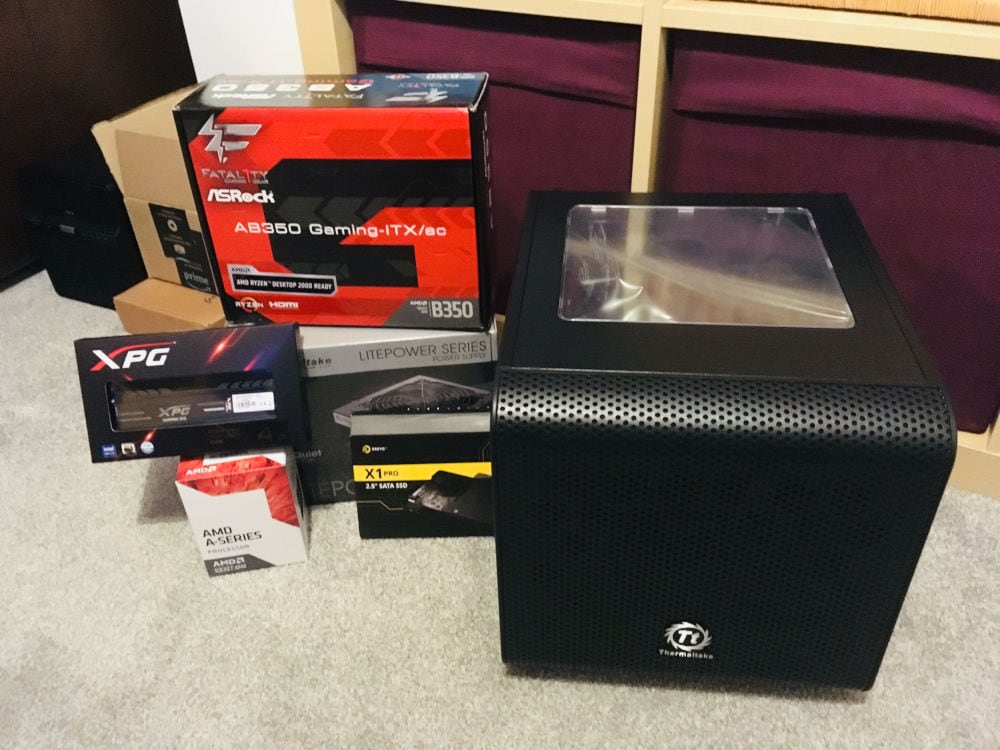Building My Home Server
I recently wrote about how I nearly lost all my data. Honestly, it was a blessing in disguise as I now have a far more powerful and capable server to store and backup my data.
After a tonne of research and a few trips to the post office to return hardware, I think I now have a setup that I’m happy with. In this article I’m going to take you through my new setup and what it cost me.
The requirements
Let’s start with a simple list of what I need the new server to do. I had numerous single points of failure in the old system, so the new setup needed to fix that.
Here’s what I needed:
- Good performance
- Local backups
- Off-site backups
- Media streaming
- File syncing
- Surge protection
The new hardware
Initially I decided to go with a simple ODRIOD device. My old Synology only had 512MB RAM and a dual core ARM CPU, so even the ODROID was a significant upgrade.
However, after some initial testing I decided the ODROID wasn’t for me as the one I bought was designed to be on a headless setup and I wanted a GUI to make admin simple.
Attempt #2
Second time around I decided to not be cheap and stump up the cash for a decent system. Doing so would mean I have more options open to me; the server will likely be in production longer and it will give me more flexibility overall.
So I went shopping again and bought an ITX rig with the following specs:
- AMD A8-9600 Quad-core 3.1 GHz CPU
- 4GB DDR4 RAM
- 120GB SSD for my root partition
- 512GB SSD for my home partition
- 1TB HDD for media (Synology donor)
- 1TB USB HDD for local backups (Synology donor)

The software
I chose UbuntuMATE with the minimal install option as the base OS. Some people may think having a GUI on a server is a waste of resources, but I like to have a GUI that I can login to.
Plus, the server has more than enough resources to cope with the “demands” of a GUI. If lack of RAM becomes an issue, I’ll install another DIMM.
To carry out the various tasks that I need the server to accomplish, I went with:
- File sync – Syncthing
- Media streaming – Plex
- Local backups – Cloudberry
- Off-site backups – Blackblaze B2
The good
For the most part the new server works really well. Syncthing is an absolute gem of an application and I’ve had no issues with it.
Plex is also great. I already had a Roku box in my living room, so installing a Plex server seemed like a no-brainer to me. Again, no real issues there either
Cloudberry is basically a graphical front-end for Duplicity, but it is well integrated with BackBlaze so I use this for both my local and off-site backups.
Performance is also really good. I just checked the system resources whilst a backup was running and streaming a movie from Plex. I’m using around 20% of the CPU and 1.5GB of RAM – plenty of burst resources if I need them!
The not so good
The only thing I’m really struggling with at the moment, is photo backups from my smartphone. Had I been using Android I could simply setup Syncthing to backup my photos, but I recently ditched Android.
I’m currently using iCloud to backup my photos, but it’s not ideal as they’re not synced with my other devices and I don’t really want my photos sitting in an Apple data center.
To get around this I’m thinking about buying a Plex Pass, which includes mobile photo syncing. But I’m still getting to grips with Plex, so I haven’t done so yet.
The cost
I’ll start by putting things in to perspective – my Synology plus the 4x1TB hard drives were approximately £500 ($650) when I bought it 5 years ago.
The cost of the new rig is broken down as follows:
- ITX hardware – £300 ($392)
- Cloudberry – £23 ($30)
- Backblaze B2 – Approximately £5 ($7) per year
- Total cost: £328 ($430)
The cost was obviously reduced as I was able to re-purpose my 1TB drives from the Synology for use with this project. However, even if that was not the case, I’d still have a much more powerful and versatile setup for around the same cost.
Is this the end?
So I now have a pretty powerful server that’s streaming my media, syncing my data and backing it up to multiple locations.
I do need to make a decision on what I’m going to do about my photo backups. That’s likely to either be a Plex Pass, or I’ll add a Nextcloud instance to the server – I’m not 100% sure what I’m going to do yet, but I have multiple options.
Overall this has been a great learning experience for me, and I think I now have a pretty safe routine, where my data is safe under most circumstances.
Oh, I also have a surge protector now too!
Are you rolling your own server? If so, I’d love to hear what your setup is in the comments below.